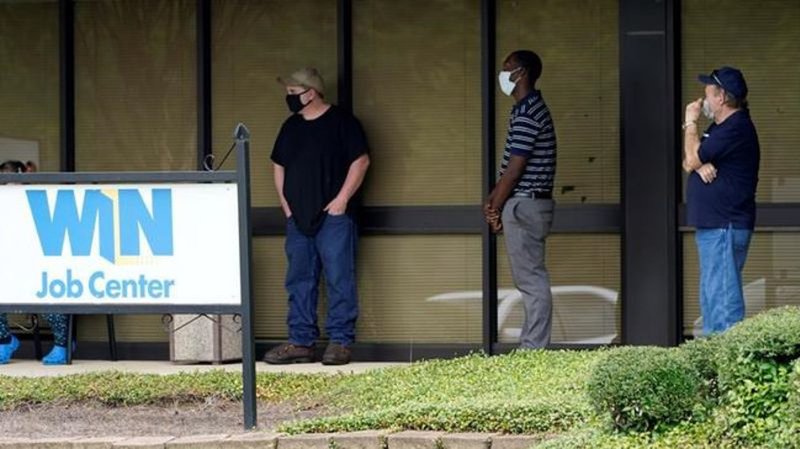
US hiring slows for 3rd month but jobless rate falls to 7.9%
WASHINGTON — America’s employers added 661,000 jobs in September, the third straight month of slower hiring and evidence from the final jobs report before the presidential election that the economic recovery has weakened.
With September’s hiring gain, the economy has recovered only slightly more than half the 22 million jobs that were wiped out by the viral pandemic. The roughly 10 million jobs that remain lost exceed the number that the nation shed during the entire 2008-2009 Great Recession.
The unemployment rate for September fell to 7.9%, down from 8.4% in August, the Labor Department said Friday. Since April, the jobless rate has tumbled from a peak of 14.7%.
The September jobs report coincides with other data that suggests that while the economic picture may be improving, the gains have slowed since summer. The economy is under pressure from a range of threats. They include the expiration of federal aid programs that had fueled rehiring and sustained the economy — from a $600-a-week benefit for the unemployed to $500 billion in forgivable short-term loans to small businesses.
